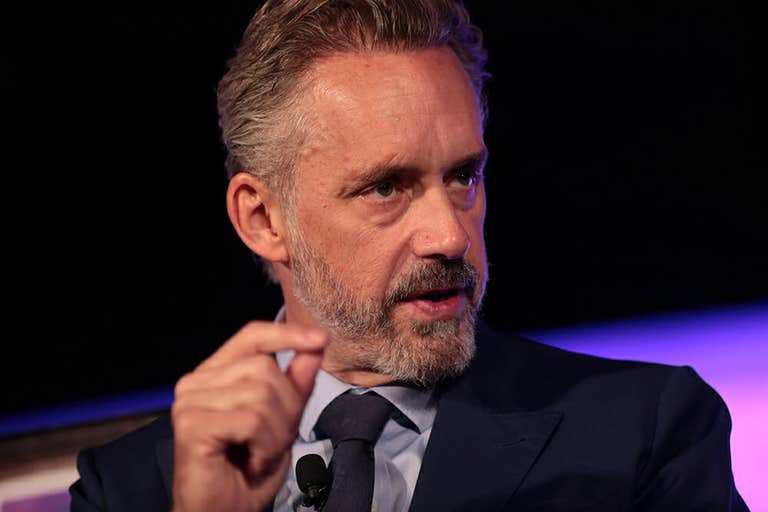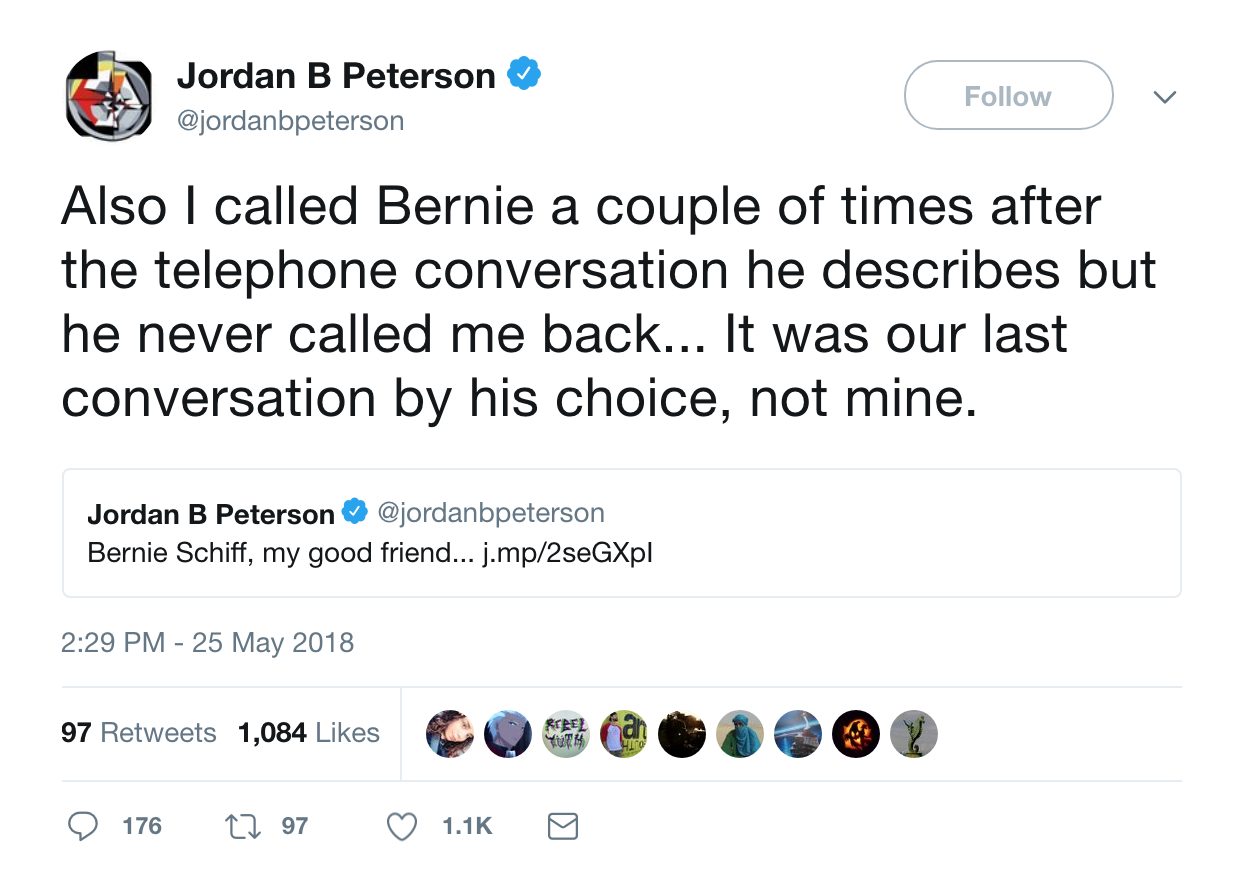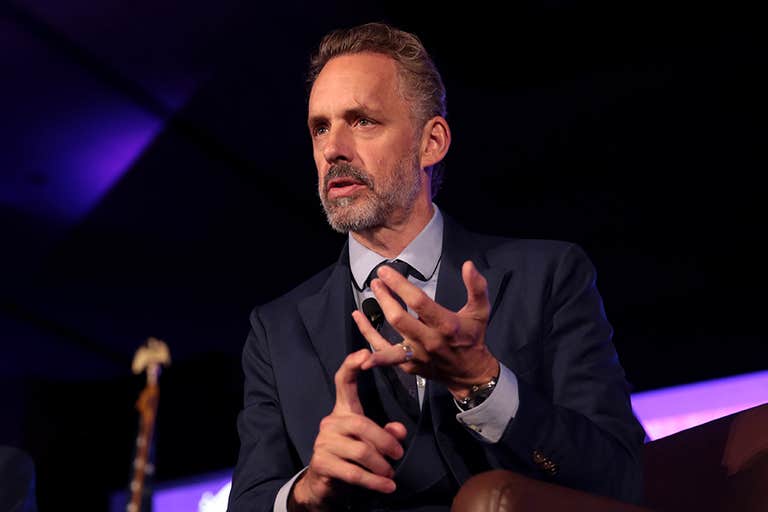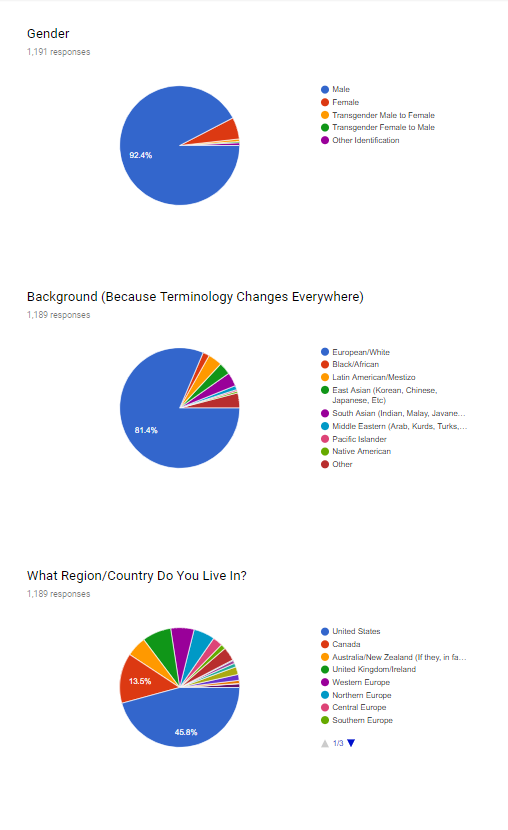“Ladies and gentlemen there will be no heckling tonight,” shouts a man standing in front of the crowd. He’s 50-something with droopy eyes, beads of sweat dripping slowly from his glistening head into the coils of his greying beard. He’s exhausted from herding patrons outside the Moody Theater in Austin, Texas. “You will be escorted out of the auditorium,” he continues.
It’s late May, one of the first scorching-hot days of the year. There are a couple thousand people packed tightly in line to see the clinical psychologist, author, and alt-right icon Jordan Peterson on his “12 Rules for Life: An Antidote for Chaos” world tour. Many in line have studied Peterson’s rules closely, and they feel like they know him deeply because of it.
His book has helped them coach their lives with a psychiatric self-help formula that he doctored up himself: Stand up straight with your shoulders back, pet a cat when you encounter one in the street, and always befriend people who want the best for you. These elementary ideas are getting people unusually riled up.

“I don’t even know who Jordan Peterson is,” says one man in line with a pit-stained button-up shirt, jaded by the hype. Others can’t contain their excitement, drooling over the spectacle of Peterson just being nearby. One middle-aged white guy dances and skips, smiling to the sky. You’d think this was a Jimmy Buffett concert.
Peterson’s a self-described anti-social justice warrior and scholar who has previously denounced trans rights, feminism, wage gaps, and immigration among other progressive causes. Beyond the flowery language and smooth, Willy Wonka-esque mannerisms, he’s empowering fringe ideas on social media. And Peterson seems to think there’s only a matter of time before society collapses on itself—and it’s up to him to save the world, rule by rule.
The apostle
A former Harvard and University of Toronto psychology professor, Peterson first rose to prominence after he publicly pushed back on Canada’s proposed C-16 law that protects “gender expression and gender identity” as human rights in May 2016. (It became law a year later.) He argues that requiring people to refer to others by their preferred pronouns is a direct compromise of free speech.
His irreverent claims grabbed international attention afterward. For nations grappling with similar transgender rights issues, Peterson became a front-running devil’s advocate. His YouTube channel exploded with millions of views and subscribers who tuned in to hear his other spiels on religion, psychology, and honing in on “dragon energy.” Outsourcing his influence on other public figures with their own huge followings, his audience spans the likes of Kanye West, Seattle Seahawks head coach Pete Carroll, and Russell Brand. They willingly do Peterson’s dirty work for him through unapologetic co-signs.
Former University of Toronto professor and colleague of Peterson, Bernard Schiff, took notice to this meteoric rise, expressing sentiments of the danger surrounding his ethos in an essay he wrote for the Toronto Star: “I was Jordan Peterson’s biggest supporter, now I think he’s dangerous.” Within the piece, he explains that Peterson, a man once committed to “truth, integrity, and common decency” has abandoned those values as his influence grows.
In a phone call and one of his final conversations with him, Schiff says that Peterson revealed to him that Peterson’s wife had a dream about the end of society as we know it. Peterson told him that it wasn’t the first time that his wife had offered sacred revelations through messages in her dreams. If Peterson’s wife is the prophet, then he’s the patriarchal apostle who will deliver the intel for her.
“I do not think he intends to do harm. I think he is trying to save to the world.” Schiff tells the Daily Dot. “And perhaps along the way he distorts things because the facts don’t matter. He knows the truth.”
Schiff says that Peterson thinks he must save the world due to a destructing social order: Male privilege and patriarchy create standards of masculinity and success that men are expected to live up to. With privilege, men have become accustomed to social, political, and economic triumphs. Now that women are empowered, men face more competition and have, according to Peterson, begun to fall behind. He blames feminism for this modern angst and crisis in not only the lives of young men, but for society as a whole. Peterson feels that the imbalance is daunting and proof of a foreseeable doom for all of us if we don’t make a change, according to Schiff. (Peterson’s management did not reply to a request for comment about Schiff’s claim that Peterson’s wife has had end-of-the-world visions.)
“[Women] are taking away their job opportunities, they are encouraging a culture in which, as Jordan puts it, men are getting feminized, and they are upsetting the nature and necessary dominance of males,” says Schiff.
“I think he is not a bad person. I think he suffers, and now others suffer, because of his grandiosity. He has an extremely rigid and not scientifically or historically valid view of who we are and of what is, and it’s one that pleases many young people,” he says. “But not all of his followers are like that. There are thoughtful people who think some of what he says makes sense. They either disregard the rest or are not paying attention. I wrote the piece I did for them. I wanted to get their attention … I think he has a legitimate following, but my guess is that it is small compared to the angry young men who are potentially dangerous.”
Schiff’s article came with its own consequences once Peterson and his fans got hold of it. Many vilified Schiff, saying that what he wrote was misguided and not to be taken seriously. Peterson responded to the article in a series of tweets, brushing Schiff’s criticism off as invalid.
In the tweets, Peterson explains that Schiff’s anger is drawn from the fact that his daughter, who is transgender, is directly impacted by the C-16 bill. He says that Schiff is a tireless advocate for his daughter and that his sentiments on the issue come from emotion around her health. “I can truly sympathize,” he wrote while downplaying the situation.
Schiff says that his daughter’s illness was unrelated to her transgender identity, and it wasn’t psychiatric, either. It’s something that is fairly easily treated.



“The thing about the tweet in response to my story is that there is no question about what he was doing. His intention was to discredit what I wrote,” Schiff says.
Schiff wrote another piece in response to the original’s backlash in an attempt to bring clarity around Peterson’s motives. “He knows what he is doing. Smart, deliberate, manipulative, and a lie. He is very clever,” he adds. Indeed, Peterson’s tweets are friendly but sarcastic in tone.
In his first book, Maps of Meaning: The Architecture of Belief, Peterson explores belief psychology and the lengths people are willing to go for those beliefs. He also believes in reinforcing a natural social order and thinks that transgender people or same-sex couples can upset that universal homeostasis. He’s a harsh proponent for that arbitrary worldview, and he’s created mass popularity for the understanding of it as gospel.
Back in Austin, political satirist and opener, Dave Rubin, brings out Peterson: “Look around, look around, these are your people! … While the left enjoys diversity of race and sexuality, we enjoy diversity of thought … We are at the center of the idea revolution!” Tonight these 12 rules, no matter how simple, seem like they can change the world.
The Peterson hive
A photo posted on Twitter by political journalist Ben Shapiro on July 2 pictured five men at a table. Alongside Peterson were other talking heads who hang in Peterson’s hive: comedian and podcast host Joe Rogan, economics writer Eric Weinstein, Rubin, and writer and neuroscientist Sam Harris.
“Now this is a party,” wrote Shapiro in the caption.

In response to the photo, Twitter haters cringed, imagining their conversation. One user wrote, “If this was My last supper, I’d skip it and go straight to the crucifixion.” Another replied, “Oh I bet the discussion about the proper tip percentage was INTENSE.”
Peterson’s response, however, was short and simple: “The conspiracy mounts….”
I wonder how serious he actually is. His online presence mixes an academic mystique with savvy troll work to create an unrelenting buzz around the idea of himself. But what does he really want? Visions of doomsday or not, I think he wants us to believe in his vision for order and repair.
Hundreds of Facebook groups and Reddit threads are dedicated to the man and his work, filled with users hanging onto his every interview or tweet to unpack divine meaning and apply it to their lives. The groups are diverse, stretching as far as Christian study groups based on his writing, satirical communities who use his writing as a source of ridicule, or groups split by geographic region, intent on fostering Peterson fan meetups in real life. Some say they require “High IQ and above” as a necessary prerequisite for access.
He’s been normalized as an Oprah-like lifestyle guru who even sells the virtues of his diet. But his philosophy is crystal clear and far-right on social and economic issues: He doesn’t believe that the wage gap between men and women is a problem, he’s anti-gun control, and he thinks affirmative action is a mechanism of reverse racism. It’s not that his followers are purely disenfranchised young men looking for a leader—he validates their values. The problem is that the very issues that Peterson writes off actually affect most people, and by shifting the goalposts on cultural conversations, he’s always setting the agenda.

As Schiff notes, he structures his arguments in a way that reorganize widely accepted ideas or definitions and redefines them to serve his purpose. That way, disagreeing with what he says is nearly impossible, and eventually, you’re convinced that you understand what he’s saying and that you very well agree. Ironically, his 10th rule is to “be precise in your speech.”
He deflects opposing viewpoints with ease.
“I actually really don’t like left-wingers, it’s the philosophy and its ideology, and lots of people align themselves with that and because I’m attacking that and demonstrating its weaknesses then it’s either accept that a reasonable person can do that and there’s something wrong with the ideology or demonize the opponent,” he says in Austin. “If you’re ideologically committed the right response is to demonize your opponent and so that means I can’t be a reasonable and well-educated psychology professor who’s actually trying to help people lead better lives, I’m some sort of neo-Nazi.”
https://www.youtube.com/watch?v=UO4j1ZsJVk0
A mass survey of the official Peterson subreddit page conducted by its admins looked into the demographic makeup of subscribers. The survey was first introduced to the thread in August 2017. A new survey is taken periodically, about every five-to-seven months, with more responses each round. The most recent survey garnered more than 1,000 responses and was concluded in early July: 90 percent of his followers identified themselves as males, the majority between the ages of 26 and 35 years old. Over 80 percent of subscribers identified as white and most people on the thread were from the United States, single, and had at least a bachelor’s degree.
It may be a comically specific fanbase, but it’s plenty powerful.

Idea wars
Peterson has amassed dedicated followers in a time of confusion, from a generation increasingly disinterested in aligning with major political parties.
He’s a convincing oracle and lion tamer. In Austin, a liberal city in a conservative state, there’s no ideological clash tonight. The danger is false intellectualism and disillusionment. Hustled applause, chanting, and standing ovations make the energy cult-like. Getting behind someone who reinforces prejudices about the world is easy; acknowledging the privileges of that person and your own is harder. And so Peterson delivers a sermon for the self, liberalism be damned.
“Are we fundamentally a member of the group or are we fundamentally individuals? That’s what the war is about,” says Peterson. “I’m on the side of the individual, and the people who are on the side of the tribe don’t like that, not a bit. And then they come after me with accusations that are within the identity politics realm.”
In a way, he’s right. There is an “idea war” going on, and he’s undoubtedly on the frontlines. But his response to the complex issues of a changing world is to stand up straight and pet a cat as if that’s going to help sort out public policy. Peterson offers simple solutions for people who resent their changing world. In their ardent defense of these principles, they fall victim to Peterson’s very lessons about individualism versus tribalism. They aren’t just internet trolls; they’re ready to mobilize.


